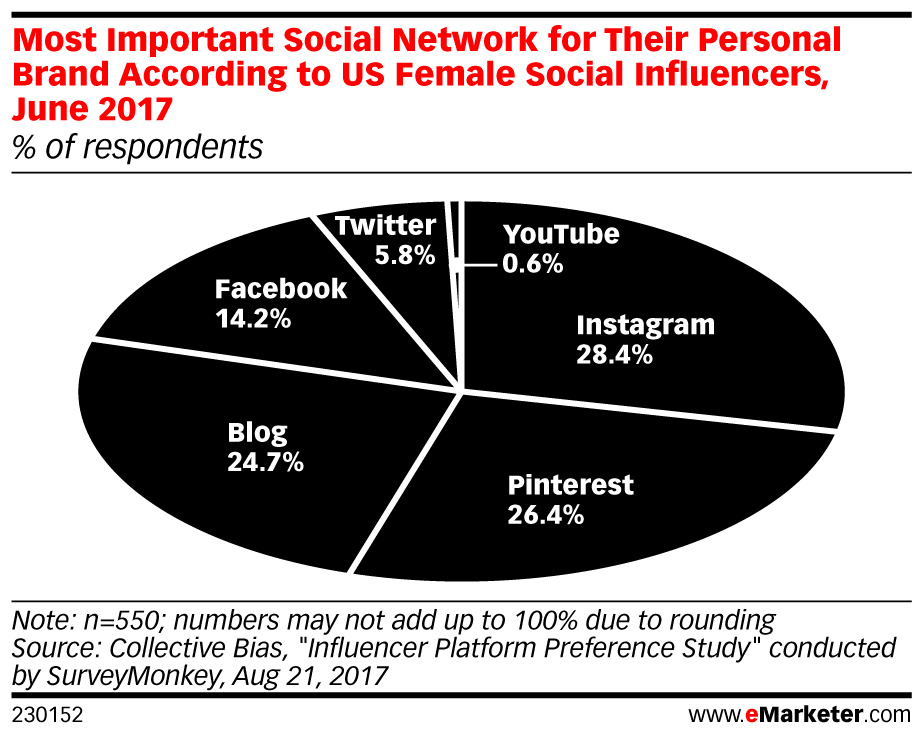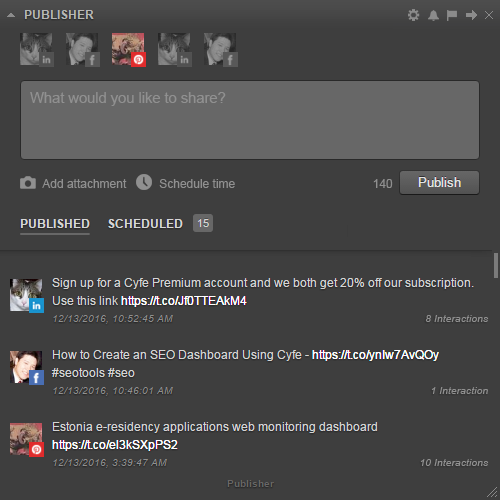
A really interesting study came out from digital marketing firm Collective Bias. They wanted to look at the demographic of female social influencers and how they used different social platforms. Their primary platform of focus, however, was Snapchat, which has been growing in popularity over the last couple of years.
 What they found was that Snapchat had managed to corner a single market, that of young people under the age of 24 without any significant leaning toward either gender. Of those users, none of them could be classified as serious social influencers.
What they found was that Snapchat had managed to corner a single market, that of young people under the age of 24 without any significant leaning toward either gender. Of those users, none of them could be classified as serious social influencers.
This is probably due to the nature of Snapchat. It does not base itself on a model of reaching a wide-scale audience. Instead it relies on the concept of exclusivity, as the original point was to curate content and messaging to a select number of people added to your network. That makes it difficult to create an influencer status in the first place.
Another issue is Collective Bias found was that established female influencers were naming Snapchat as more or less useless. They didn't see the value in the platform's opportunities and instead chose to throw their lot in with other networks that more nurtured their goals and growing fan base.
So Where Are These Influencers?
The study above found that two networks have been named as indispensable to these female influencers. First was the visual networking site Instagram. The network has been growing steadily since its inception with people of all ages, though with young people making up its core demographic. Earlier this year it managed to hit 700,000 active users.
Second, female influencers see Pinterest as another indispensable platform. This is a bit more of a surprise, as Pinterest has not had nearly as much growth as Instagram and the growth it does have seems to have slowed to a crawl in the past year.
Seeing the two networks of choice does offer us some insight into how female influencers are using social media for their purposes. Their efforts are almost entirely visual, utilizing the unique tools and audience of both to provide them with a launching point for their brand. In some cases this may be a tangible product, or it could be a personal brand aimed at establishing household name recognition.
The Older Networks
What about other social networks, particularly older ones? Are they still relevant? Yes and no. The Collective Bias study showed that the female influencers that they were watching had very little presence on sites like Facebook and Twitter. This could have to do with the age of the influencers or their target audience, as both platforms have been losing steam with the under 20 crowd for quite some time.
That doesn't mean they don't exist there. Luxury Travel writer Ann Tran is an avid Twitter user with a fanbase of 567,000 users (@AnnTran_). One of the most popular pages on all of Facebook is Lady Gaga, who is the single biggest celebrity influencer on the site.
What Can We Do With This Information?
Looking a the above information we can get a sense of the trends that are forming around social media and female influencers in particular. They rely on visual mediums for their content and platforms that support it. They avoid any network that is isolated or doesn't reach a wide, open audience.
They are starting to fall away from platforms like Twitter and Facebook where the influencers there are already well established and cornering the market.
With that all in mind we are able to begin making plans to become influencers ourselves. Here are some general tips to help the process to begin:
Discover A Niche You Can Really Corner
What is something you are really passionate about? How many people are there already taking part in that? If you want to stand out you need to discover a way to corner that niche in a unique way.
You need some kind of gimmick, nothing too outlandish but that keeps you from turning into just another face in the crowd. What makes you "you"?
Dedicate Yourself To Posting... A Lot
A few times a week used to be the average posting schedule for a brand and that is still the case for certain business types. But if you want to marketing yourself it is going to take a whole lot more.
Dedicate yourself to posting multiple times a day. Carve out an hour or two a day just to work on your social media presence, minimum. The most well known influencers are the ones who are on enough to be seen. Tools like Cyfe is a good solution to look at because it allows you to both monitor your social media performance and schedule social media updates:

Here are a neat collection of more social media tools you may want to check. I found a few tools I had no idea about on that list.
Be Genuine, Not A Bot
One way to become an influencer is to become a bot. This is automating the process and getting down and dirty numbers that help boost your profile. It is a poor way to find success because it sets the tone of your account right away as fake and useless.
Sure, people might follow for some fun quotes or jokes or pictures. But that won't last and when you start coming out as a real person it could actually hurt you because people didn't follow originally for a personal experience.
Ignore What Everyone Else Is Doing
Do you know what the best influencers do? Be themselves. They don't copy the path of someone else who has already made it because that has already been done. Influencers become big based on the merit of their personality and who they are.
If you are just going to try to be someone else then you won't get anywhere. You may even annoy the fanbase of the people you are emulating.
Start Connecting With Other Influencers
There are so many influencers out there and they are a great resource. You can learn from them, connect with them and help one another to grow. Not to mention it is a lot of fun getting to know others in your niche.
Do you have some ideas about becoming an influencer? Have some interesting stats? Let us know in the comments!
Disclosure: Cyfe is a client of SEOSmarty, a company ran by Ann Smarty
